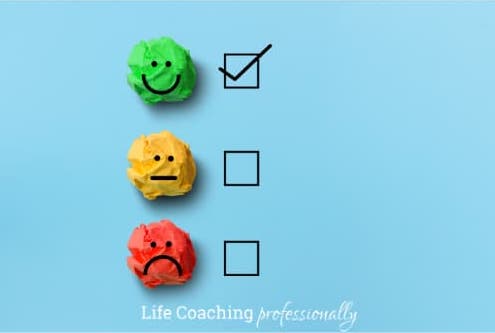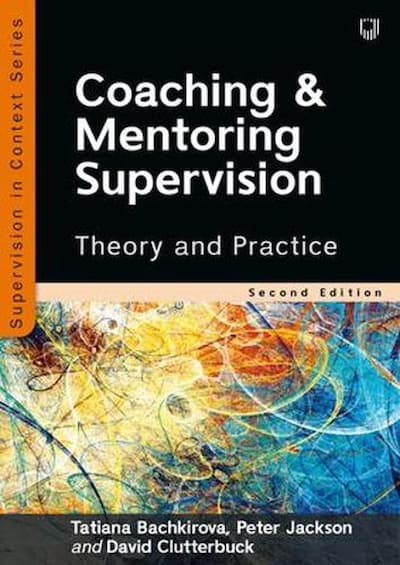- Life Coaching
- Training
- Find a coaching mentor
How To Find A Life Coach Mentor Or Supervisor
When you are looking for a life coach mentor or supervisor it's so important to find the right match. Here are the things to know about the difference between mentoring and supervision, the questions to ask and the traps to avoid so you can find the right fit for you.
Quick Links
FYI: I may receive commissions at no cost to you. Please see my affiliate disclosure for more.
What are the Benefits of Mentoring and Supervision?
When you start coaching, your head is packed with information and coaching scripts and you may feel a bit nervous and unsure when it comes to going live with real clients or what to best do to attract those clients
So there are huge benefits in having someone more experienced to hold your hand and give feedback and advice as you get started and, if you need, continuing to be there for you once you are established.

Knowing you have another qualified, experienced and empathic coach who you can check in with before and debrief after a coaching session makes those early or tricky sessions so much easier and less confronting.
Having ongoing life coach mentoring or supervision throughout your coaching career, not necessarily with the same coach, can keep you professionally on track, challenged and up to date.
However, I don't subscribe to the edict, that to be a good coach you must have have another coach to supervise or mentor you. But it's a great resource to have if you feel you need it and especially valuable in those early days of coaching.
What's The Difference Between Life Coach Mentoring and Supervision?
It's important to understand that they are not one and the same so you can make a choice as to which is going to deliver the best result for you.
Life Coach Mentoring
A coach mentor is generally considered to be someone who has "been there and done that" and will give the mentee coach help and advice. They are experienced coaches who may work with you to enhance your actual coaching and/or help you grow your business with their experience in marketing or a particular coaching niche.
For instance, a certified mentor coach with a business background who specialises in coaching and mentoring small business owners, should be able to offer advice to the mentoree on building their practice from their own experience.
Many coaching schools have their own internal mentor programs where experienced graduates who have been coaching for some time can be engaged to guide those who have just qualified sometimes at not cost.
Personally, I found mentoring new coaches to be very rewarding.
Mentor coaches sometimes hold the credential "certified mentor coach" and may be accredited as such by independent associations such as the ICF which offers mentor coach certification for its credentialed coaches.
It's worth checking if the coach training school you are considering enrolling in includes mentoring for graduates? Some accredited schools offer coach mentoring as a follow-up to their training, and have a list of coaches you can contact to set up the mentor/coach relationship. The ICF (Internation Coaching Federation) website has a Find a Mentor search function you can check out.
Life Coach Supervision
This is usually a much formal and structured process than mentoring. It takes the process to a much higher (and more supervisory) level than coach mentoring and requires a more stringent training and certification level. It is invariably more about enhancing coaching skills than helping with practice growth.
According to the information on the ICF (International Coach Federation) website ...
"Coaching Supervision focuses on the development of the coach’s capacity through offering a richer and broader opportunity for support and development. Coaching Supervision creates a safe environment for the coach to share their successes and failures in becoming masterful in the way they work with their clients."
Some coaching schools are now offering training and certificates or diplomas in coach supervision for experienced coaches.
There is also an Association of Coaching Supervisors which you can check out on the page of Coaching Association listed at the end of this article (it's the last one).
Those who mentor coaches can also now invest in formal supervision.
Does the concept of the supervision of coaching and mentors really interests you but you would like to understand more about the details of how it really works?
If so, then consider Coaching & Mentoring Supervision - theory and practice, as a really comprehensive and up to date explanation.
It will tell you all you need to know whether you are a coach or mentor considering the benefit of getting a supervisor or at some time becoming one yourself.
Why Do You Want From Your Mentor or Supervisor?
It's important to know what you expect from either. So before you start interviewing, make a list of all the reasons WHY you want their help and what areas you want them to help you with. This will help you decide whether mentoring or supervision is your best choice.
Also what background and qualifications are you looking for.
Maybe you want your choice to be a coach who will:
- Give you the experience of good coaching
- Have a proven track record in achieving goals similar to yours and be willing to share their experience
- Help you plan or debrief your coaching sessions with positive, constructive feedback
- Gain practical coaching business start-up or growth advice.
- Give you suggestions and use as a sounding board to bounce off and discuss ideas
- Be a safe space to be honest, open and vulnerable
For example, if growing your coaching practice is the main help you need, a mentor with business experience, rather than a supervisor may be the answer. Someone who not only has great coaching skills but has built his/her own successful coaching practice from the ground up. In other words, you want a life coach mentor who had already walked the path you are embarking on and "been there and done that"!
Group Mentoring
Group Mentoring is a great option. Not only is usually more affordable to be part of a group than one-on-one mentoring but you have the opportunity to hear and relate to the challenges and wins of your your fellow coaches. Again some schools provide a free network of such groups that meet either face-to-face or by phone.
I once created a "Remote" phone coaching mentor group for the graduates of Results Coaching Systems, where I had done one of my coach trainings. It was a great success in that it allowed regional and even overseas coaches, who could not get to a face to face meeting, to get together to share experiences and be informally mentored by each other as well as by me.
What Should You Look For In A Life Coach Mentor or Supervisor?

Different coaches may specialise in different areas of mentoring or supervision or be qualified enough to coach you through every issue that you, as a new coach, may have. So ask lots of questions - my suggestions are at the end of this section.
This checklist will help you find the right coach before signing up for mentoring or supervision. And they don't have to be local - the sessions can be just as effective when done online using Zoom or Skype, even phone.
- Qualifications: Is the coach a graduate of an independently accredited coaching course? Are they credentialed with a recognised independent coaching industry association. See the related page at the bottom of this article
- Experience: Can they show evidence of a good level of experience and provide testimonials?
- Training: When engaging coach supervisor, check they have had specific training in that skill as supervision is usually more formal and complex than mentoring.
- Working towards a Credential? If you are engaging a coach to help achieve credentialing from a particular coaching organisation, look for a one whose own life coaching credential is with that organisation. They will be familiar with the process, requirements and standards as well as the traps to watch out for.
- Flexible: Ideally the coach will have experienced the methods of different coach training philosophies and models so that they are not too “fixed” in their own coaching model and can approach challenges from different perspectives.
- Business AND coach focused: If you want a mentor for setting up and growing your coaching business focus, be wary of those business mentors/coaches who offer to grow your coaching business but who are not coaches themselves. They may have no real understanding of the different nuances of coaching as compared with general marketing and lead generating.
- Generous: Has lots of coaching resources and tips to share with you.
- The Budget: If budget is a consideration, look for a coach who offers group mentoring or supervision rather than paying high individual fees.
- A Good Match: Very importantly, the mentor coach or supervisor should be someone you feel comfortable and confident to work with. So before you sign up have a good conversation about what you want from them and whether this is what they can offer.
- Be choosy: Be willing to interview several coaches or supervisors until you find one who really feels right. And if the one you choose doesn't live up to expectations, be willing to discuss and if necessary move on.
- Check their background: Ideally your supervisor or mentor should have a good understanding of your niche or speciality. A mentor coach who's niche is personal health and fitness coaching, may be out of their depth mentoring a corporate executive coach or a team coach.
What should you ask before you sign up with a mentor or supervisor?
10 Suggested Questions
These questions are just a guide of questions to ask either/or a prospective mentor or supervisor and to get you thinking about what you need to know. Use, adapt or add to in your own words to suit your specific needs.
1. Tell me about yourself, what background do you bring to coaching?
2. What led you to coaching?
3. Do you have a coaching niche, specialty?
4. How long have you been supervising or mentoring coaches?
5. How many coaches have you worked with?
6. How would you describe your style - structured, informal?
7. Do you mentor me with my coaching skills as well as growing my practice?
8. What are your fees and terms of payment?
9. How often do you like to meet with your clients and are you available between sessions?
10. Do you offer a trial period
A Webinar To Help You Grow Your Coaching Business
This recorded webinar What does it REALLY take to grow a successful coaching business 10 Lessons, is a gem to watch if you are looking for practical, down to earth, realistic information and advice on growing your coaching business.
Emma Louise Elsey of the Coaching Tools Company tells her 16 year coaching career evolution and why building a coaching business is so challenging. She share the Top 10 lessons she's learned about what it really takes to build a successful coaching business.
The 90 minute webinar includes 35 minutes of no holds barred question-time!
I hope all this helps you decide whether a life coach mentor or supervisor is best for you, and give you some confidence in finding your perfect match to hold your hand and help you advance through your coaching career.
And I want to acknowledge coach Liz Haeberlin for her input to this article.




